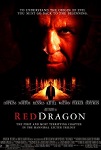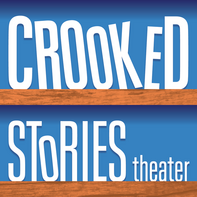Development Hell
Part I: Your Script is Never Locked
A month or so ago, a reader wrote me with a question pertaining to a production company’s interest in his script. He told me that a company liked the script, but didn’t feel it was quite there yet. The development executive said that she felt it was about 70% there, and that she was willing to work with him to get his script to 100%. (First off, how do you even arrive at 70% as a figure to throw out? What separates a 65% script from a 70% script? Or 70 to 75?) Obviously, she wanted money; for “consulting”. About $500, to be exact. Then maybe, just maybe, they could start shopping the script around. This surprised me, because what she was describing was known as development, and here’s the thing: it shouldn’t cost you a goddamn thing. (Sorry to be crass, but I’m tired of all the blood-suckers, trying to bilk innocent writers out of their most likely already limited supply of money.)
You see, no company is ever 100% when they option your script. There are always going to be changes. They may like your script….they may LOVE your script…but guess what? They want to change it. And don’t get me wrong, this doesn’t make them evil or unable to “see your vision”, this is just how it goes. Some changes will be better than others, some will be much, much worse, but your script will change. And you have to be ready to walk the line. You have to be willing to accept criticism and new suggestions, but also fight for what you think is right. But you have to do this without coming across as “the stereotype” of a writer.
And what stereotype is that, you ask? The writer who is “overprotective of his/her baby.” Get ready to hear that word a lot. Your “baby”. “I know this is your baby, but…” or “You have to be willing to slaughter your baby.” (There’s going to be a lot of graphic, violent imagery associated with your “baby”.) Every time you speak up, you’re going to have to work extra hard to choose your words carefully, so you don’t sound like a mother looking at their ugly child through rose colored glasses. Because of this you have to make concessions and pick your battles; you can’t defend everything.
When I used to work in copy, my mentor gave me some great advice on dealing with bad advice. Say an executive is giving you a note you don’t particularly like, and you just flat-out don’t see how it can work. His advice: Show them why it doesn’t work…and then have a back-up ready. The back-up being what you really want. It’s not always going to work, but if it is bad enough advice, once it’s put to paper, it just might show through. And if it does, you want something good on stand-by.
But back to the original point: your script is never locked. Let me give you an example: I’m currently in development on a script (hence my month-long hiatus). I optioned the script over two years ago, and once the ink dried on the contract, we immediately began re-writes. I was originally told that the re-write would consist of small changes; a tweak here, a tweak there. One year later, I had a “locked” script. During that year, the script had been passed off to interns, producers, and veteran executives for their impressions. With each impression came more notes. I changed the script a lot during that time, including hacking off the last 50 pages and re-writing them in their entirety. But finally, the “lock”. Everyone at the company was happy. Now it was time to look for a director. But once we got the director on-board…he had notes. And these notes spawned more notes from the producers at the company; because once one person starts commenting, it’s hard to not add something. So it was time for another re-write. And here’s the kicker: during our meetings, the director was flipping through the script and said “And of course, once we get the actors attached, they’ll all have their notes.” And it was then that I realized that this is never really going to stop. I’ll probably be making changes to the script on set if we ever get there.
And you, as the writer, have to be OK with this. You have to approach every re-write as an opportunity to tighten and tune the script. Do I like every change I made in the new draft? No. But I can appreciate that many of the changes I made are solid and have, in the end, benefited the script immensely. I worked with the company/director, not against them. And because of this, I have a new, beautiful baby…that I’m going to have to kill in about two months.
About the writer: A talented writer and 10 year veteran of the industry, “P.J. McNeill” has seen it all (and he’s ready to kiss and tell.) Got a question, a comment or just general bile /praise you want to spew? Email PJ at pjscriptblog@gmail.com. New to P.J. readership? Click here for more articles!







